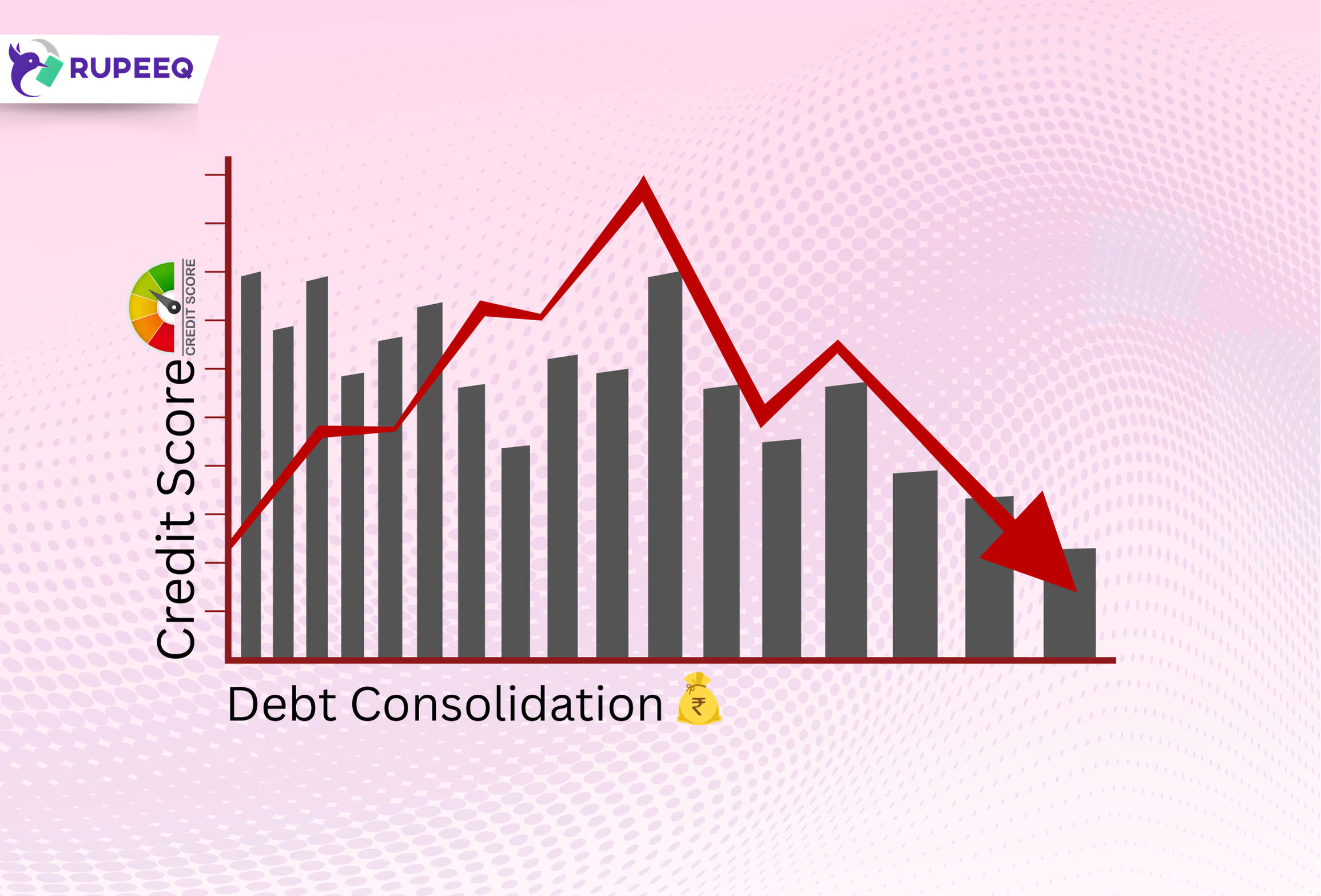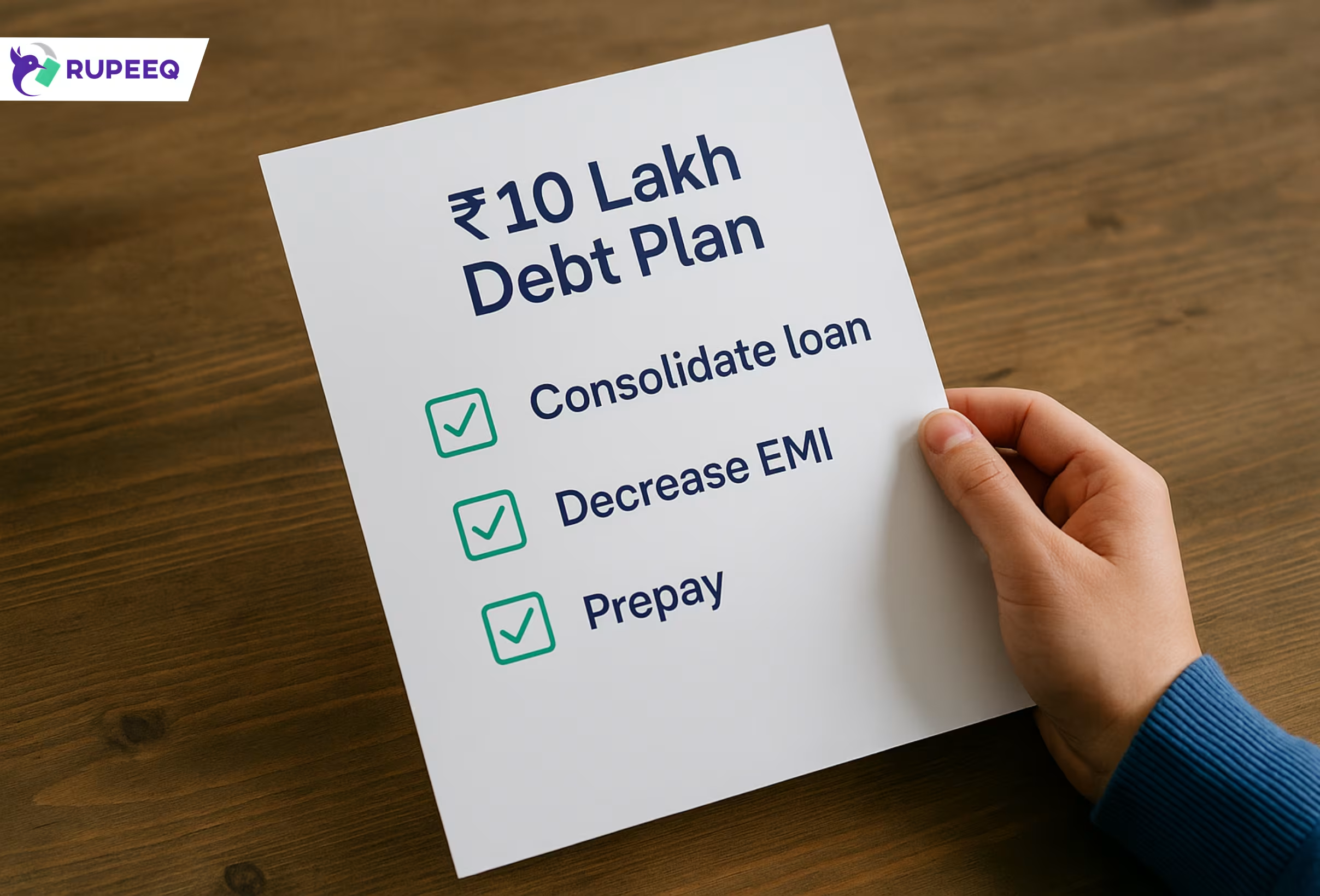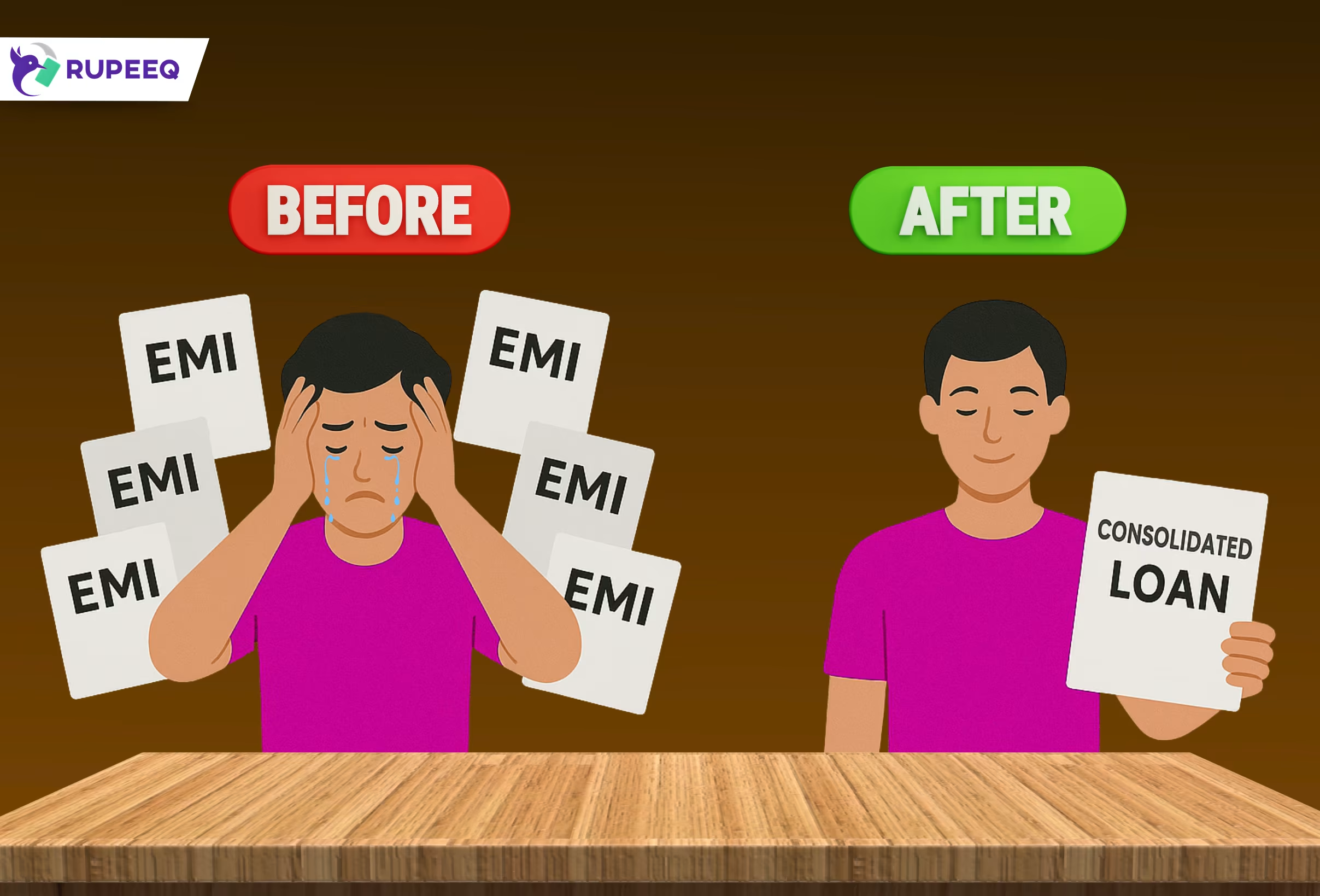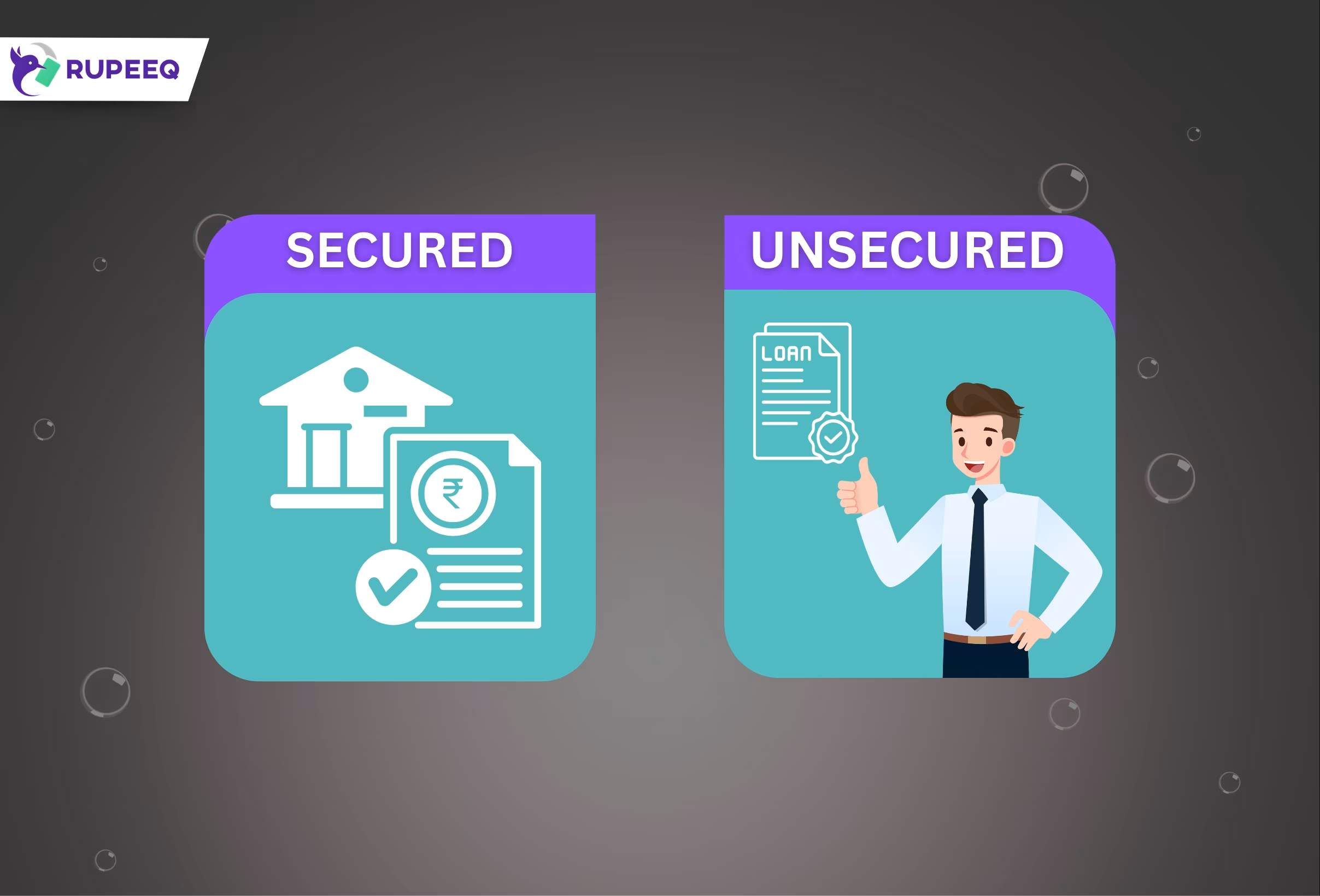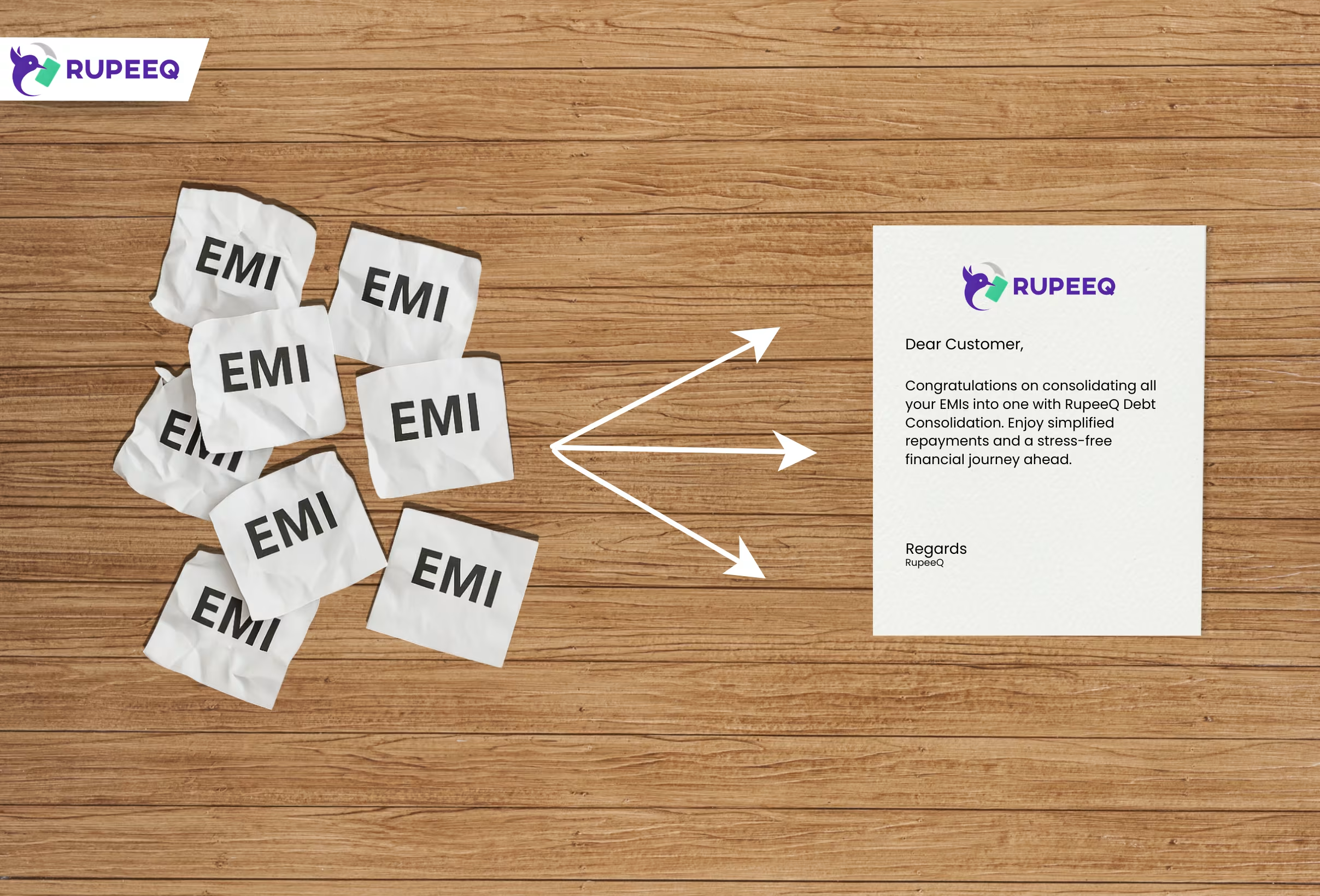If you’re thinking of consolidating your loans, one of your biggest concerns might be—Will this hurt my credit score? It’s a fair question. After all, your credit score affects everything from your loan eligibility to the interest rate you get. The short answer is: debt consolidation may cause a temporary dip, but it can actually improve your credit score over time—if done correctly.
In this blog, we’ll break down how debt consolidation affects your credit score in both the short and long term, and how you can use this strategy to boost your credit health.
What Is Debt Consolidation?
Debt consolidation is the process of combining multiple existing loans into one single loan. Instead of managing three or four EMIs every month, you take one loan to pay off all existing debts and repay only one EMI over a new tenure.
The loan used for consolidation is usually a personal loan and may come with better terms, such as lower interest or a longer tenure to reduce your EMI burden.
Will Consolidating Debt Hurt My Credit Score?
In the short term: Yes, slightly.
When you apply for a new loan, lenders make a hard enquiry into your credit profile. This can cause a small and temporary dip in your credit score, typically by 5–10 points.
Also, if you’re closing multiple loan accounts and opening a new one all at once, your credit report will reflect sudden changes, which may temporarily lower your score.
In the long term: No, it can actually help.
Once your old loans are closed and you start repaying the new loan on time, your credit behaviour improves. A single EMI is easier to manage, reducing the risk of missed payments. This steady track record improves your credit score over time.
How Debt Consolidation Affects Your Credit Score
Here’s a breakdown of the positive and negative effects debt consolidation can have on your credit profile:
1. Hard Enquiry Impact (Short Term)
When you apply for a consolidation loan, the lender pulls your credit report to check eligibility. This is called a hard enquiry and is recorded by credit bureaus.
Impact:
- Slight drop in score (5–10 points)
- Effect is temporary and recovers in a few months
RupeeQ Tip: Avoid applying to multiple lenders at once. Instead, use a platform like RupeeQ where you can view offers from multiple lenders with a single soft enquiry that doesn’t impact your score.
2. Closing of Existing Loans (Neutral to Positive)
When you repay old loans using the consolidation loan, those loan accounts are marked “closed” on your report.
Impact:
- Positive if the loans were closed on time
- Reflects improved credit discipline
Note: Always ensure that your previous lenders report these closures properly. Follow up if needed.
3. New Loan Account Opening (Short-Term Dip)
The new consolidation loan will appear as a fresh credit account. This adds to your total active credit, which may temporarily lower your score.
Impact:
- Short-term dip due to increased total credit exposure
- Recovers within 3–6 months of consistent repayments
4. Timely EMI Payments (Long-Term Positive)
The biggest benefit of debt consolidation is that it simplifies your repayment into one EMI. With proper planning, it’s easier to stay on track.
Impact:
- Timely EMIs improve your credit history
- Shows responsible financial behaviour
- Builds credit score steadily over time
RupeeQ Tip: Set up auto-debit or reminders for your EMI to avoid missing payments. On-time payment is the most important factor in building your credit score.
5. Lower Credit Utilization (Positive)
If you’re consolidating high-utilization credit lines like digital loans or credit cards, your credit utilization ratio improves.
Impact:
- Credit bureaus see you as less credit-hungry
- Positively affects your score in the medium to long term
Impact of Debt Consolidation on Credit Score
| Factor | Impact | Short-Term or Long-Term |
| Hard enquiry | Slight dip | Short-term |
| Closing old loans | Positive | Medium-term |
| Opening new loan | Slight dip | Short-term |
| Timely EMI payments | Strong positive | Long-term |
| Lower credit usage | Positive | Medium-term |
When Consolidation May Hurt Your Score Long-Term
Debt consolidation is not a magic fix. It can hurt your credit score if you make the following mistakes:
- Missing EMIs on the new loan
- Borrowing more than required and using the extra for non-essential spending
- Taking fresh loans after consolidation and building debt again
- Defaulting or delaying part-payments
RupeeQ Tip: Treat your consolidated loan as your final debt. Stick to a repayment schedule, avoid new debt, and monitor your score regularly on RupeeQ.
How to Consolidate Debt Without Hurting Credit Score
Here’s how to use debt consolidation to your credit advantage:
1. Check Your Credit Score First
Know where you stand. If your score is low, work on improving it before applying.
2. Use Soft Enquiry Platforms
Apply through platforms like RupeeQ that offer soft eligibility checks. This prevents unnecessary hard enquiries from damaging your score.
3. Borrow Only What You Need
Don’t take a higher loan amount than required. More debt can reduce your future eligibility.
4. Set Up Auto-Pay
Ensure that EMIs are never missed. Even a single delay can drag your score down.
5. Avoid Overlapping Loans
Don’t apply for new loans while repaying your consolidation loan. Focus on closing this loan first.
Final Verdict: Does Debt Consolidation Hurt or Help?
Short answer:
Debt consolidation may cause a temporary dip in your credit score due to the new loan enquiry and account opening.
Long answer:
If used responsibly, debt consolidation helps improve your credit score by:
- Reducing EMI stress
- Encouraging timely repayments
- Closing multiple loans with a clean record
Final Thoughts
Debt consolidation is a powerful financial tool—when used wisely. If you’re a salaried or self-employed borrower trying to simplify your debt and rebuild your credit score, this strategy can be the first step in the right direction. But it works only if you commit to repayment discipline.
Make sure you evaluate your loan options, use a credit-smart platform, and avoid taking new debt until the current one is cleared.
Want to consolidate your debt without hurting your score?
Check your credit score for free, view soft-checked offers, and compare loan terms easily on RupeeQ, India’s smarter way to manage and reduce debt.

